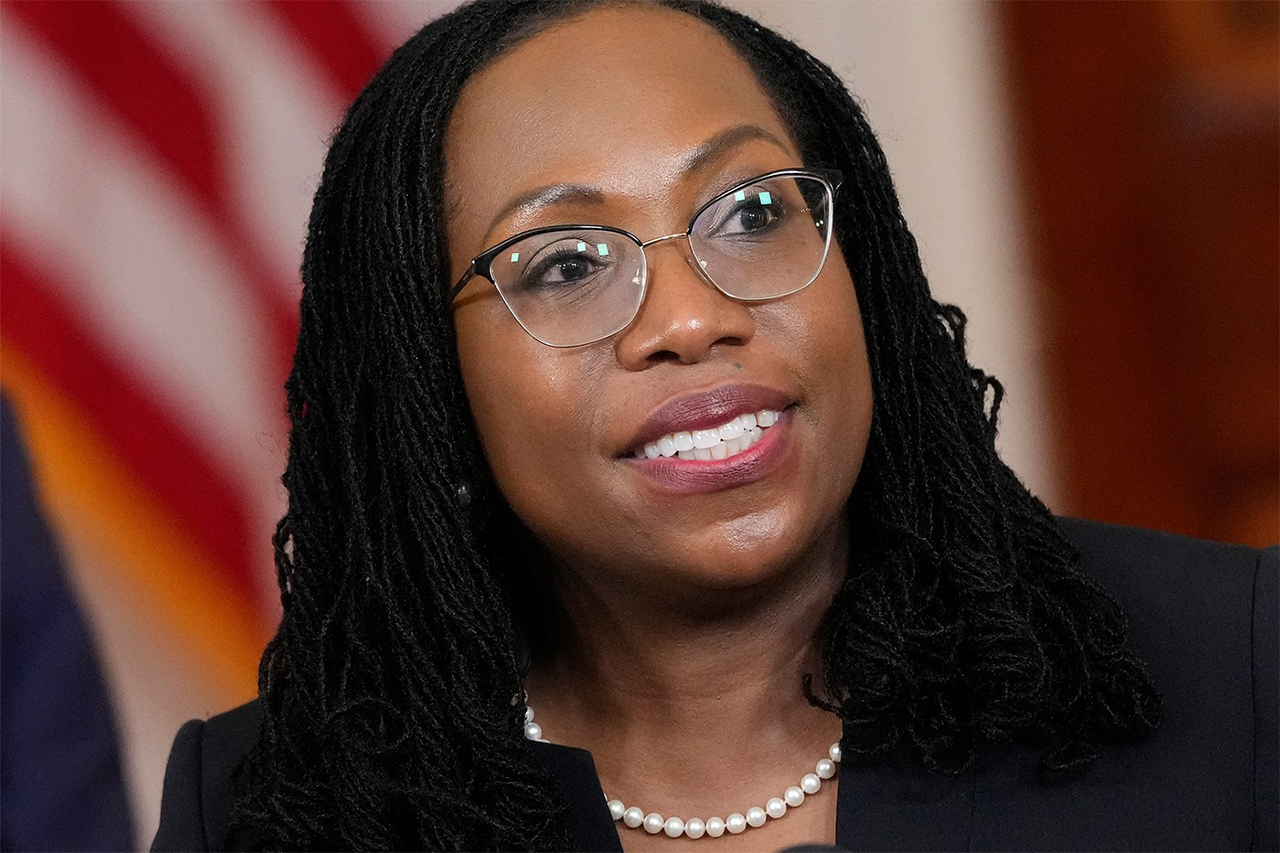
We will all remember where we were when Ketanji Brown Jackson was confirmed as the first Black woman to join the Supreme Court of the United States. Like many, I “heard” the momentous news through Instagram, mindlessly scrolling through the app to find that the world had changed. Admittedly, Jackson’s appointment came as a surprise to me — I was perhaps protecting myself from the eventual disappointment and pain, as historically, our country has often disregarded and undervalued Black women.
Of all the 116 Supreme Court Judges, Jackson is the first Black woman to be appointed to the highest court in the United States. Although the first Black female U.S. Vice President Kamala Harris presided over the vote, no Black women casted one as there are currently no Black women senators, nor were there any among the 22 Senate Judiciary members present for her hearings. It’s painful to say, but there have only been two Black women who have been senators in the history of the congressional house. At both the local and state government level, Black women are 58% less likely to be hired than white men, while qualified women are 27% less likely to be hired than qualified men across the board.
After watching Brett Kavanaugh’s contentious trial where Dr. Christine Blasey Ford courageously brought to light his past sexual misconduct, and Kavanaugh himself admitted to never trying a case from start to finish, my faith in our political and judicial system dwindled. The notion that one needs to be qualified to hold a position of political power quickly became eschewed in 2016 when we witnessed a former reality TV star be elected to the highest office in the United States. It’s worth noting that the president who nominated Kavanaugh has been accused of sexual misconduct by 26 separate women, but of course, Black women are rarely, if ever granted the same allowances white men are.
Republicans didn’t seem to mind Kavanaugh’s flimsy legal history nor the alleged sexual assault in question, as South Carolina Senator Lindsey Graham revisited the trial, comparing Democrats’ valid questioning of the incident as an ambush. Disregarding the fact that he was over his allotted time, Graham asked Jackson how she might feel about enduring a similar treatment, seemingly threatening her with a difficult trial, despite her pristine record. Keeping her composure, Jackson replied, “Senator, I don’t have any comment on what procedures took place in this body.” Senator Cruz’s attempt to undermine Jackson’s credibility over his willful misunderstanding of critical race theory. For context, Jackson is a board member of Georgetown Day School who happens to support an anti-racist curriculum. Cruz’s questioning demonstrates the GOP’s not-so-hidden agenda to keep a diverse range of lived experiences, namely marginalized experience, out of politics.
Watching Jackson’s confirmation hearing, I was inevitably reminded of Vice President Harris’ 2020 debates as she was repeatedly interrupted by her peers and could only express her disdain through now-viral facial expressions. Almost every woman, particularly women of color, could relate to her experience, being talked over and effectively silenced in work meetings and everyday conversations by those who felt superior to her. As Harvard Law student Abigail Hall shared with New York Times, “[Jackson has] had to meet every single mark and she hasn’t been able to drop the ball and that’s something that’s ingrained in us, in terms of checking every box, in order to be a Black woman and to get to a place like Harvard Law School.”
While representation is not the ultimate salve for our political problems, Jackson’s confirmation is a step in the right direction, as Senator Cory Booker emotionally shared that in seeing Supreme Court Justice Judge Jackson’s hearing, he felt he was looking at his mother. Democracy, at its best, is meant to represent the interests and values of the people it governs. With virtually no Black women in the room, we are not in control of the decisions that affect our everyday lives, surrendering our power to those who do not seem to want to listen to us, even when we are present.
Jackson’s nomination to the Supreme Court sends the powerful message that Black women’s work is not just meant for the sidelines. It’s not enough to carry the nation on our backs and receive no recognition for work or the actual means to change and better the experiences of those around us. Nothing happens in a vacuum, meaning that race almost always impacts nearly every experience for people of color. As Gwendolyn Gissendanner, who also attends Jackson’s alma mater, said, “We always have to think about what we need to do to make my often Black low-income clients appeal to a white judge who doesn’t understand their experience, but someone who you don’t have to take the extra leap to prove to them that race interacts with every aspect of your life makes a giant difference in what types of decisions can be made.”
With the confirmation of Supreme Court Justice Judge Jackson, hopefully the politicians who speak for us will begin to more accurately represent the country it serves.

No comments:
Post a Comment